Sixth Form Prospectus
Your future begins here

Sixth Form Prospectus
Your future begins here
Every teacher at Ipswich School is passionate about educating students. They know the key to a successful education is sharing their passion and capturing the imagination of those they teach.
At the end of their time at the Sixth Form, students will have discovered their passions in life. It could be for a specific subject - we have an exciting range to offer in the Sixth Form. It might be for sport, drama or music, and we have outstanding facilities which provide the perfect environment to nurture skills in these areas.
Alternatively, students could develop an interest from our extensive co-curricular activities. We offer great options here. There’s the Combined Cadet Force, community service and the Duke of Edinburgh Award Scheme, among many others.
They will also leave with a fine set of A Level results and we are normally at the top of local results tables. We are very proud of our academic success which is one of the key features of Ipswich School.
Four core values underpin everything that happens in our Sixth Form. Care for each individual, the community and each other. Passion for our subjects and activities. Belief in the potential within each individual, so students grow and excel in what they do. And clear, comprehensive and timely communication You can find out more about our values and how we apply them across all aspects of school life on our website.
Choosing a Sixth Form is probably one of the biggest decisions parents and students have to make. Whether you know Ipswich School already, or perhaps are choosing an independent school for the first time, do come and see how we can help you to create your own extraordinary future.
Nicholas Weaver Headmaster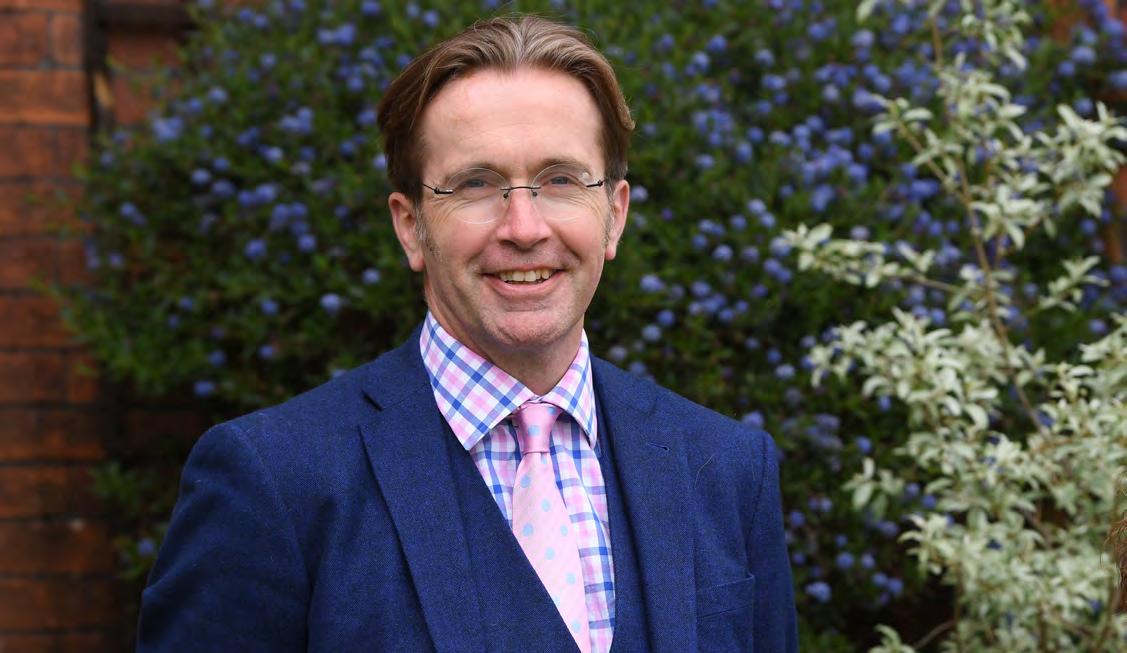
The first hard evidence of Ipswich School is, sadly, an unpaid bill from 1399, though it was probably in existence well before this date.
From these humble origins the school’s early history took on a very different course with the rise to power of former pupil Thomas Wolsey. Wolsey set about refounding the school with a view to providing pupils for his college in Oxford. Thomas Cromwell, Wolsey’s trusted adviser, took on the task and dissolved twelve local monasteries to pay for the school.
However, just over a year later Wolsey, unable to secure a much-needed divorce for Henry VIII, fell from grace and the monarch was keen to close his new school. Stones intended for new school buildings were shipped from Ipswich to London and used to build what is now the Palace of Whitehall. Against the odds Ipswich School survived. Cromwell persuaded Henry to grant the school its first charter, which was later confirmed by Elizabeth I.
In the nineteenth century Ipswich School moved to its current site next to Christchurch Park. Prince Albert laid the foundation stone of the main school building in 1851. Shortly after this in 1883 the Prep School was established for children aged 7 to 11 years, providing a stepping stone to the Senior School. Girls first joined the Sixth Form in 1974 and the whole school became fully co-educational in 1997.

The Sixth Form is the most important stepping stone for today’s students. The world they will face is likely to be more challenging, uncertain and changeable than that of their parents.
To flourish in the years ahead of them students need to be well equipped with a broad skill set, have resilience, tenacity and an appreciation of how to sustain their overall wellbeing.
Our Sixth Form offers students all this. It also gives them the very best academic education. They leave with top A Level grades. They secure places at the university of their choice. They get into Oxbridge and top degree courses including law, medicine and veterinary science. Or they join a top quality apprenticeship or enter the world of work with a clear plan for future success.
Our teachers are all specialists in their field and they work with ideal class sizes - usually around 10 or 12 and never above 16. This means that students build an excellent rapport with their teachers. We offer a wide range of A Levels, with computer science and politics added more recently. Our four subject Year 12 gives students added flexibility when it comes to making their final A Level choice for Year 13. Students may also choose to take an extended BTEC Sport and Exercise Science plus one A Level in the Sixth Form.
An exciting feature of our Sixth Form is The Edge. This ground-breaking programme gives students the skills and knowledge that are a prerequisite for success, and indeed survival, for the 2020s and beyond. This programme runs throughout Year 12 and into Year 13.
There are considerable pressures on Sixth Formers today, and many of them are not academic. Having a positive outlook and being actively involved in school life is central to good mental health, and we really try to promote this in our Sixth Form. However, we are all too aware that sometimes more support is required. We have a great team on hand should it be needed. Our school matron has expert knowledge
about teenage physical and mental health. We also have a school chaplain and dedicated wellbeing co-ordinator. Beyond this we have school counsellors with on-site counselling rooms and other specialists we can call upon.
The wellbeing of our Sixth Formers is always our highest priority. This is why sport is part of the Sixth Form curriculum. We offer top quality games coaching in a wide range of sports and competitive matches with other schools. We also have an abundance of opportunities in drama and music.
Our recently refurbished Sixth Form Centre is a dedicated space for all Sixth Formers, including study rooms, computing facilities, a lounge area and coffee bar. Students really enjoy and look after this facility, which serves as their base throughout Years 12 and 13.
Our Sixth Form is where our students’ extraordinary futures begin to be realised.
Ben Cliff Head of Sixth Form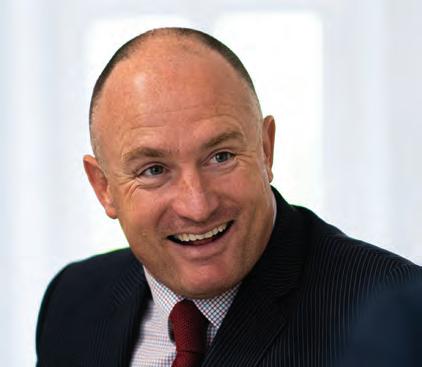
Our students really enjoy life in the Sixth Form. Sixth Formers are placed in House-based tutor groups which combine Year 12s and 13s. The average number in these tutor groups is 16, which we think is the perfect size. Our pastoral care is based around House tutors.
Tutors spend a great deal of time with their tutees - with two registrations daily and extended tutor sessions at least once a week. This means that tutors really get to know students and are best placed to provide all the pastoral care they need. Tutors are also supported by Heads of House who take a keen interest in the welfare of Sixth Formers and who are in daily contact with them.
Most Sixth Form subjects are taught by two teachers, and each subject has 13 lessons a fortnight in Year 12, rising to 14 a fortnight in Year 13. Many, but not all, lessons are doubles lasting around 85 minutes.
Balance is important in life so there is Sport every Tuesday afternoon with focus sport training in preparation for weekly fixtures as well as options suitable for all to promote a healthy lifestyle. Thursday afternoons are devoted to Activities, which include the Combined Cadet Force, various community service schemes, journalism, cooking plus additional sports options, among many others.
The school day starts with Registration at 08.40. Lunch is at 13.00 and is served in a canteen reserved for Sixth Formers. The school day ends at 16.15. Students can expect up to twenty hours of PSC (homework) per week, but much of this can be done in school during study periods.
We trust our Sixth Formers to use their time productively and students have study periods factored into their timetable. There are dedicated study rooms in the Sixth Form Centre, some with computers. We also have a well-resourced school library they can use.
We also believe it is important to bring students together as a Sixth Form, and we have social events in September and at Christmas, as well as the Year 12 week away in Devon. After all, school life has to be fun!
Getting to the university of their choice is one of the main reasons why students come to the Sixth Form at Ipswich School.
We know how important it is to give our students the best possible career and university advice. We have a dedicated careers team able to support and advise Sixth Formers throughout Year 12 and Year 13 right up to and after A Level results day.
The vast majority of our students go on to university and we have developed a highly effective process to support our students’ UCAS applications. We have excellent contacts with universities and have honed our support for Oxbridge candidates, medics, lawyers and other specialist areas over the years.
Our record of success is excellent in helping these students - and all others - secure a place at their first choice university. We also support those heading into apprenticeships or straight into work and have helped an increasing number of students take this career route.
We have very good links with employers and host an annual Careers and Universities convention every year which students have found highly useful in planning their next steps after school.
Our students really enjoy life in the Sixth Form.
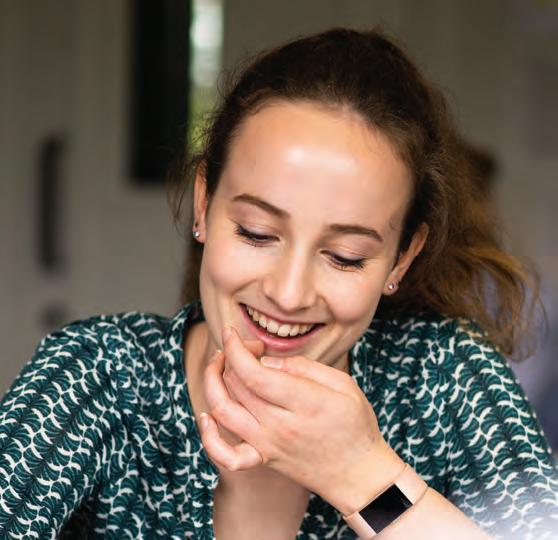
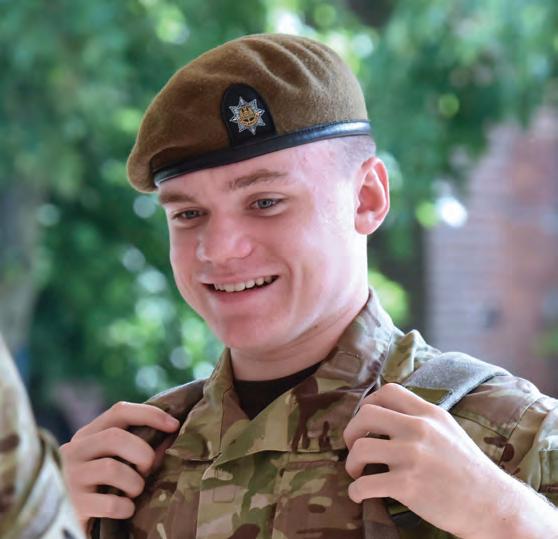
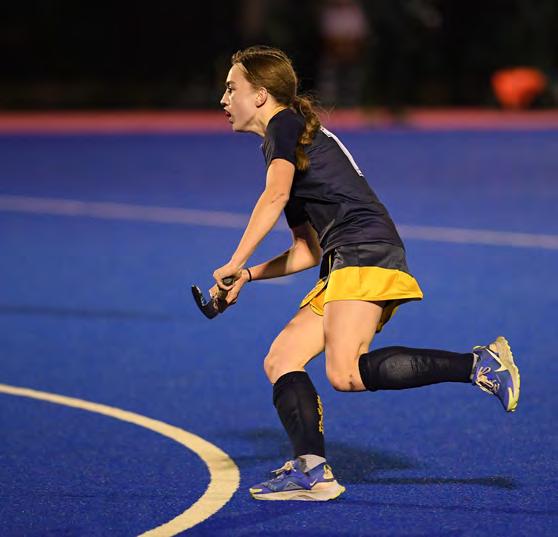
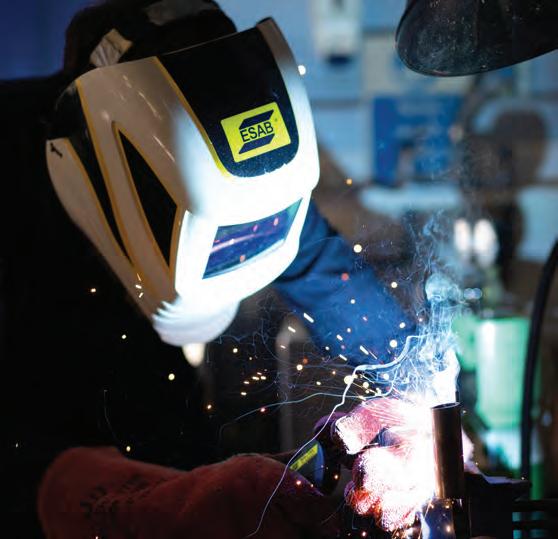


Students at our Sixth Form achieve excellent results. Over the years we are usually at the top of local A Level league tables.
Three or Four A Levels?
Normally students in our Sixth Form start Year 12 studying four subjects, which usually drops to three in Year 13. The reason we start with four is that it gives students an important element of flexibility. All too often a student may choose A Levels in Year 11 which might not fully suit them when they get into Year 12. Taking four subjects at the start of Year 12 gives them the opportunity to try them all out, but later hone this to just three subjects.
There are different times throughout Year 12 when students can decide to drop a subject, but for most students we would encourage them to keep going until the end of the year with all four of them. In some cases, often for scientists and mathematicians, students will go on to take
all four A Levels at the end of Year 13 and, in some exceptional cases, the most able students may even be able to sit five A Level exams.
Students may also choose to take an extended BTEC Sport and Exercise Science plus one A Level in the Sixth Form.
In 2023, over 80% of A Level exams were graded A*-B, with over 1 in 6 graded A*, and we had a 100% pass in all 26 subjects offered at A Level. In addition, 70% of our BTEC students achieved Distinction or higher. 82% of students secured places at Russell Group or competitive universities, with destinations including Cambridge, Exeter, Bristol, Loughborough, Newcastle, Manchester and York.
Getting to the
of their choice is one of the main reasons why students come to the Sixth Form at Ipswich School.

Every Sixth Form teacher is passionate about educating students. They know the key to a successful education is sharing their passion and capturing the imagination of those they teach.
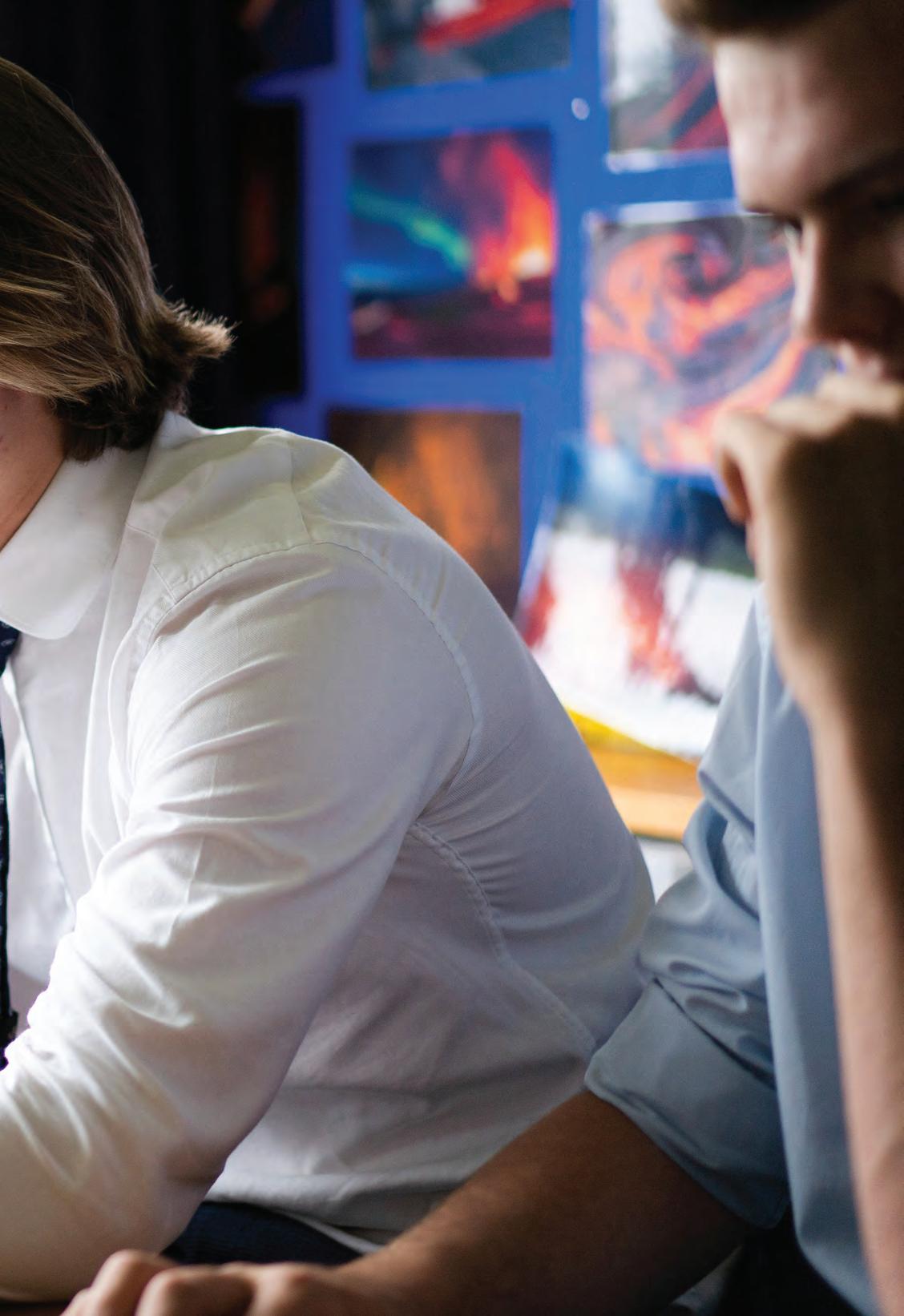
Head of department: Richard Parkin
Exam board: Eduqas
Exam results: Average of the A Level results achieved in Art over the most recent three year period:
A* 44%, A*-A 64%, A*-B 87%, A*-C 97%
Through expressive and theoretical studies, A Level Art leads to a fuller understanding of the visual arts. Emphasis is put on the importance of recording the creative process. This is done through samples and keeping a work journal which tracks the collecting of ideas.
The course encourages experimentation in Year 12 and is full of practical workshops. This enables students to demonstrate an understanding of past and contemporary art and design practice. Year 13 builds on these skills as students specialise and focus on a personal theme. They have the opportunity to attend life classes after school – a valuable and memorable experience.
We improve students’ drawing skills through imaginative tasks and stimulating workshops, that will spark a passion for drawing. At the very start of each year all students are involved in a still-life project based on installations created by art staff during the summer holiday. This enables the students to create different outcomes based on direct observation. Students also experience art first-hand by visiting galleries and working with our artist-in-residence.
The art course consists of two units: coursework, which carries 60% of the final mark, and an exam paper worth the remaining 40%. Each unit is assessed using four assessment objectives which evaluate the quality of research into other artists, material experimentation, recording (written, drawn and photographed) and a final outcome.
Students are also able to specialise in textiles or photography. We have a new room for textiles and a new ICT and studio space for photography.
Head of department: Sarah Duncombe-Jones
Exam board: AQA
Exam results: Average of the A Level results achieved in Biology over the most recent three year period: A* 17%, A*-A 54%, A*-B 80%, A*-C 94%
Biology at A Level takes a big step up from GCSE and students are able to look in much greater detail at many of the topics covered in previous years.
The linear course culminates in three exam papers. Year 12 work includes, biological molecules, cell structure, exchange and transport systems and includes a field trip to Holkham in Norfolk with the start of the ecology work for the second year. In Year 13 students look into the complexities of photosynthesis and respiration, as well as the nervous system, genetics and gene expression.
An extensive range of activities allow students to develop their practical skills, enabling them to make links with theories. Students gain practical competency and skills in a range of techniques. These are assessed throughout the course within the normal lab environment.
Students have the opportunity to take part in the Biology Olympiad and we have had many medallists over recent years.
Head of department: Edward Wilson
Exam board: AQA
Exam results: Average of the A Level results achieved in Business over the most recent three year period: A* 11%, A*-A 33%, A*-B 68%, A*-C 87%
A Level Business gives students a clear view of how an organisation operates. Students learn about the challenges of starting a business, enterprise, management of people, communication and motivation, operations management, marketing and competition as well as finance management.
In Year 13 the strategic decisions of large businesses are studied and students will be able to make strong decisions and back them up with real life examples and good analysis of the likely outcomes. Students learn to analyse information provided about a business in order to solve problems by identifying a course of action for that business.
During the course students build up their knowledge of business terminology and strategies, recognising good and bad strategies for a variety of scenarios. In addition, students analyse closely the four major business functions (marketing, human resources, operations and finance) and examine the process of consultation and design. During the course we have visits from local business people and trips to local companies.
Three exams are taken with a mix of short answer, data response and longer essay-type questions.
Head of department: Daniel Halford-Thompson
Exam board: OCR
Exam Results: Average of the A Level results achieved in Chemistry over the most recent three year period: A* 18%, A*-A 56%, A*-B 84%, A*-C 91%
Chemistry at A Level can be divided into three areas: physical, inorganic and organic. Topics studied at GCSE such as bonding, rates of reaction and equilibrium are significantly expanded and new ones are introduced including arenes, buffers and nuclear magnetic resonance spectroscopy. The development of practical skills is an integral part of the course and forms part of the final examinations.
There is a student-run STEM Society which gives pupils a forum to present and discuss interesting topics. At the end of Year 12, students showing great promise are
entered for the Cambridge Chemistry Challenge which is a demanding paper that takes students significantly beyond the A Level specification.
Year 13 students have an opportunity to take part in the especially challenging but ultimately rewarding Chemistry Olympiad, which stretches the most able A Level candidates and enables them to really demonstrate their scientific flair.
At the end of the course students sit three written papers consisting of multiple choice and short answer questions.
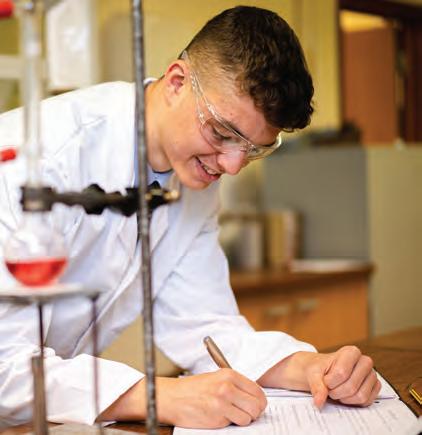
Students build an excellent rapport with their teachers.
Head of department: Stuart Dove
Exam board: OCR
Exam results: Average of the A Level results achieved in Computer Studies over the most recent three year period: A* 30%, A*-A 46%, A*-B 75%, A*-C 92%
The A Level Computer Science course at Ipswich School is divided into three components. The first provides 40% of the final mark and relates to computer systems. It covers computer architecture and the design of the internal operation of a computer. It also looks at how the component parts of computer systems relate to one another, including software, data, hardware, communication and people. It investigates the different methods of communication and the functionality of networks and the internet, as well as legal, moral, cultural and ethical issues.
The second component provides 40% of the final mark and relates to algorithms and programming. Here students learn how to program with increased complexity and gain a better understanding of the commands and structures found in most programming languages. The final component provides 20% of the total A Level and is a practical portfolio-based assessment. Throughout the programming project students develop computational thinking techniques which are a set of fundamental skills that help produce solutions, and are the main principles of solving problems using computers.
To get the most out of this course it is recommended that students have a strong background in maths.
Head of department: Max Molenaar
Exam board: OCR
Exam results: Average of the A Level results achieved in Design Technology over the most recent three year period: A* 13%, A*-A 59%, A*-B 84%, A*-C 100%
The course supports many areas of future study including all aspects of design, architecture, engineering and even medicine. The course specialises in product design. This allows us to tailor studies to a wider variety of outcomes allowing students to excel as they can play to their strengths.
So, students might focus on the areas of resistant materials, graphics or systems and control. In Year 12 students have the opportunity to hone and refine their design and making skills through a range of projects. In Year 13 students work on a project of their own choice, culminating in a high quality folder and manufactured prototype.
There are two exams to complete the course: principles of product design followed by problem solving in product design. The A Level is assessed by 50% coursework and 50% final exam.
Head of department: Bethan Stoll Exam board: Edexcel Exam results: Average of the A Level results achieved in Drama and Theatre over the most recent three year period: A* 53%, A*-A 66%, A*-B 100%, A*-C 100%
In A Level Drama and Theatre, the theoretical study of practitioners, theatre history and theatrical genres underpins practical explorations, encouraging students to interpret text in challenging and innovative ways. Students perform published scripts, and learn to devise and write their own work. The course provides students with transferable skills, including teamwork, problem solving and the ability to deal with challenging situations, that are desirable in many different careers.
The course is delivered in three components. The first is devising, which amounts to 40% of the course. This involves creating an original piece of theatre based on a stimulus and a key practitioner. Students can take the role of performer/designer/director. Students also complete a portfolio evidencing the devising process and evaluating the final product.
The second component is text in performance covering 20% of the course. This includes a group performance of an extract from a professionally published play or a monologue/duologue from a published play.
The final component, which includes a written exam, covers 40% of the course and is about theatre makers in practice. Students evaluate live theatre, they deconstruct a text from page to stage in light of the work of a key practitioner and they interpret a performance text and re-imagine a directorial concept.


7:00 am: After waking up to my alarm and eating a healthy breakfast I get on my school bus where I can catch up with friends throughout the journey.
8:40 am: By this time I have arrived at school and I’m with my tutor group where I am registered and notified of any important messages.
8:50 am: Once tutor time is finished we go to House Assembly where our Head of House speaks to all students ranging from Year 9 to 13. Being a senior prefect means I sometimes take an assembly with my counterparts.
9:05 am: I begin my day of lessons with double physical education where we are currently learning about biomechanics, this is very interesting to me as PE is integrating physics into sport and explains how elite athletes perform to such a high standard.
10:30 am: By now break has started where we can have some snacks and socialise. Usually people purchase items from the tuck shop at the Sixth Form Centre such as the cookies as they are very good.
10:50 am: Break is then followed by computing. I enjoy working with computers and believe it will help me with my future choices. This has improved my knowledge
of social media channels and my use of Photoshop and InDesign.
12:20 pm: This is a single lesson of psychology. Currently we are learning about mental health which is an interesting and important subject to learn about.
1:00 pm: At lunchtime I go to the sixth form dining hall to eat. This time provides a lot of freedom for students to relax in their own way such as chatting with friends, playing on the field or visiting clubs such as the Model House of Commons where a student led team talk about political issues happening.
2:00 pm: It’s Activities afternoon. Usually I will play my favourite sport, rugby, however, now the season has ended I am doing athletic development. The aim is to make students become fitter, faster and stronger before the next season begins but also show how exercise can be enjoyed.
4:00 pm: I arrive back at school where I can chat with friends before I get on my bus for the journey home.
5:30 pm: I get back home and after some relaxation I complete PSC before having dinner and preparing my bag for the next day.
Head of department: Edward Wilson
Exam board: AQA
Exam results: Average of the A Level results achieved in Economics over the most recent three year period: A* 29%, A*-A 66%, A*-B 91%, A*-C 99%
Economics A Level is split into two areas. The first focuses on ‘microeconomic’ aspects where students investigate topics which explain price rises, and how governments respond to problems in areas such as education and the NHS. The world of business economics is also addressed in which students examine issues such as cost, revenue and profit within a range of practical industries.
The second area is about ‘macroeconomic’ issues. This involves learning about key measures of national economic performance and the main objectives and instruments of UK economic policy. We examine the UK tax system and the implications of government spending plans and debt amongst much more. International trade, globalisation, global poverty and economic growth across the world - as well as the ramifications of Brexit, responses to Covid and the ‘cost of living crisis’ - are some of the thought-provoking issues covered.
Students have the opportunity to enter several national compeitions, or take part in visits or economics conferences with speakers on current issues.
At the end of the second year, students sit three exam papers: one on microeconomics, another on macroeconomics and a final one centred around a current economic issue.
Head of department: Nicki Carter
Exam board: OCR
Exam results: Average of the A Level results achieved in English Literature over the most recent three year period: A* 32%, A*-A 56%, A*-B 87%, A*-C 96%
The course comprises the detailed study of a particular literary genre in addition to the examination of nineteenth century drama and poetry, plus a major Shakespeare play. Students prepare to undertake the coursework unit at the end of Year 12 which is completed and submitted in the first term of Year
13 (the summer holiday provides a timely opportunity for pupils to read set and related texts). This portfolio of two essays takes as its focus a theme which connects a significant work of prose, poetry and drama. The course therefore offers students the chance to specialise but also consider texts within their transcendent social, cultural, critical and historical contexts.
The department has a reputation for subject specialism and a genuine passion for literature, film and theatre which we are keen to share; we welcome enthusiasm and repay it generously.
The syllabus is embracing, thought provoking and excellent preparation for degree-level study. Within seminar-style lessons the relationship between teacher and student is consciously less formal; we attract individuals who enjoy exchanging ideas within a rigorous, supportive and good humoured environment.
In addition to a coursework unit, students sit two end of year exams on the texts studied during the two year course.
French
Head of department: Jon Thompson Exam board: Edexcel Exam results: Average of the A Level results achieved in French over the most recent three year period: A* 34%, A*-A 62%, A*-B 78%, A*-C 95%
The A Level course covers a range of social issues and cultural topics which all relate to life in France and French-speaking countries. It builds on the topics of GCSE, but introduces new language so that students develop a thorough insight into aspects of French culture. Students study a French film in depth, and in the second year of the course they focus on a work of French literature. More contemporary issues such as modern French music, the changing nature of the family and the multicultural society, are also core elements of study.
Students develop their ability to express themselves fluently in the spoken language, carrying out an independent research project into an aspect of French culture or society that is of particular interest to them, and then discussing it in depth in the oral exam. Alongside the skill to translate accurately from and into French, students extend their ability to write evidence-based, persuasive essays in French. In Year
12 topics studied include: the education system in France, the world of work, changing family structures, music, the media, festivals and traditions and a French film. In Year 13 the course includes: multiculturalism and the rise of the far-right in France, France under the Occupation and the Resistance, a work of French literature and an independent research topic.
At the end of Year 13, French A Level has three exams: a comprehension paper with listening and reading tasks; a writing paper, comprising two essays and a translation; and an oral exam.
Head of department: Hannah Steele
Exam board: AQA
Exam results: Average of the A Level results achieved in Geography over the most recent three year period: A* 19%, A*-A 53%, A*-B 92%, A* - C 100%
Pupils studying Geography A Level will be taught by two different teachers, one specialising in human geography and the other in physical geography.

Students will be exposed to an incredibly diverse range of topics and skills, which have strong cross curricular links with material studied in A Level Biology and Economics. Fieldwork at the end of Year 12 will support the planning of students’ non-examined assessment (NEA), which forms 20% of their A level.
Physical geography looks at coastal systems and the water and carbon cycle in Year 12, followed by hazards in Year 13. Human geography considers our contemporary urban environments and global systems in Year 12, leading on to global governance and changing places in Year 13.
Fieldwork is undertaken during a residential trip to north Norfolk. Pupils will not only explore the coastal geomorphology, geology and physical processes at work, but also look at how coastal tourism has shaped the local towns. To support their human investigation pupils will also have a day trip around Ipswich, exploring urban models and regeneration.
We encourage our students to take responsibility for their own learning, signposting them to journals, TED Talks and extended reading.
As a linear A Level, the course is examined at the end of Year 13 with two written exams; one human and one physical. Their non-examined assessment will be internally marked and moderated in the Lent Term.
Our students leave with top A Level grades and the vast majority secure a place at their first choice university.
Head of department: Michela Luiselli
Exam board: Edexcel
Exam results: Average of the A Level results achieved in German over the most recent three year period:
A* 29%, A*-A 86%, A*-B 100%, A*-C 100%
The course covers a range of social, cultural and political topics relating to Germany and German speaking countries. Much emphasis is placed on developing an understanding of aspects of German culture and over the two years students study one literary text and one modern German film. Students will have one lesson a week on a one-to-one basis with the German language assistant, in order to prepare for the oral examination at the end of Year 13. A major part of this oral examination will be a discussion of the student’s own individual research project, based on some element of German culture or society.
In addition, students will develop skills in translation, both to and from German and in writing critical and analytical essays in German. In Year 12, students study topics including the media, the German education system, music in popular culture, the world of work, festivals and traditions, nature and the environment and a German film. Topics studied in Year 13 include immigration and multicultural society, Germany since re-unification, East Germany society before re-unification, one literary text (a novel) and an independent research topic.
At the end of Year 13, there are three exams: a comprehension paper with listening and reading tasks; a writing paper, comprising two essays and a translation; an oral exam.
Head of department: Olivia Tollemache
Exam board: Edexcel
Exam results: Average of the A Level results achieved in History over the most recent three year period: A* 18%, A*-A 62%, A*-B 94%, A*-C 99%
A Level History provides an interesting and challenging course which enhances students’ skills of analysis and ability to write persuasive, lucid arguments. Students are encouraged by teachers who are working in their specialist areas. Courses are delivered using
materials written by the department and supported by a wide range of relevant books. Students are guided in the direction of further reading as their own interests develop. They will be encouraged to argue and debate both with peers and teachers. Over time students will increasingly work independently and become self-sufficient learners. Most importantly, students will cover some of the most fascinating and controversial aspects of modern history.
In Year 12 we study the history of Germany and West Germany from 1918-1989, including an investigation into the historical debate around the causes of World War II. This is accompanied by a paper that considers the rise and fall of fascism in Italy c1911-1946.
In Year 13 students go on to consider the relationship between Ireland and the Union c1774-1923. There is also a coursework module where students produce an independent piece of work on a historical debate related to their study of German history.
There are three exams at the end of Year 13 comprising 80% of the final outcome, the other 20% is the coursework.
Head of department: Kat Hutton
Exam board: OCR
Exam results: Average of the A Level results achieved in Latin over the most recent three year period:
A* 0%, A*-A 50%, A*-B 84%, A*-C 100%
Latin A Level is taught in small classes and by specialist teachers. Our students enjoy annual trips to university study days and lectures. Students read a wide range of literature - both verse and prose and through this will gain a deep understanding of life and culture of the ancient world.
In Year 12 students visit Rome on our study tour and see an exciting selection of monuments and the ancient capital. This includes dining at the British School in Rome where they also attend an evening lecture. The programme of study days and trips that we provide is designed to take our students far beyond what is required for the final exam and give them an insight into why we are so passionate about this exciting subject.
Students sit written exams on unseen and seen texts. They are expected to demonstrate skill in translation, comprehension and literary analysis. There is also an optional element of prose composition.
Head of department: Matthew Core
Exam board: OCR
Exam results: Average of the A Level results achieved in Mathematics over the most recent three year period: A* 31%, A*-A 58%, A*-B 82%, A*-C 93%. For Further Maths over the same period, the average results are: A* 36%, A*-A 76%, A*-B 96%, A*-C 96%
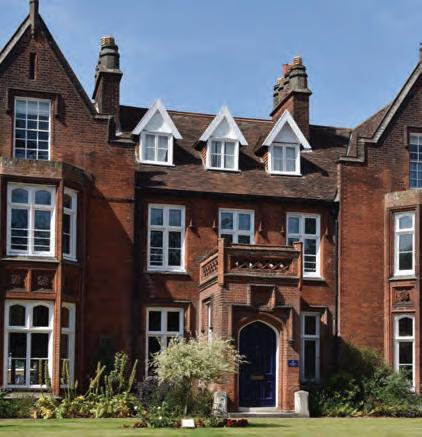
This is a linear A Level course, where students study pure mathematics, statistics and mechanics. Assessment is by exam only (three papers) and there is no coursework requirement. The most able mathematicians may wish to take ‘double maths’ - these students will complete A Level Mathematics in Year 12, followed by A Level Further Mathematics in Year 13. For A Level Mathematics there are three 2 hour exams in pure maths, pure and mechanics and pure and statistics. For Further Mathematics there are four 11/2 hour exams - two in pure maths, one in statistics and one in mechanics.
Head of department: Beverley Steensma
Exam board: Edexcel
Exam results: Average of the A Level results achieved in music over the most recent three year period: A* 37%, A*-A 82%, A*-B 100%, A*-C 100%
A Level Music enables pupils to develop three main aspects of their musicianship: appraising, composing and performing.
Appraising music (40% of the final mark) covers six areas of study: instrumental music, vocal music, popular music and jazz, film music, new directions and fusions. By studying set works and a wide range of related listening, students develop analytical skills, and are able to place music in context both socially and historically. Students are exposed to a wide palette of music and are encouraged to think independently about how to evaluate music critically.
Composition (30%) is split into two sections. Techniques (15% of the paper) is the theoretical aspect where pupils learn about chords and their function in detail. Students learn to harmonise a chorale (hymn tune) in the style of Bach and this knowledge helps to inform their analysis of scores and their composition. They also submit one composition (15% of the paper) where they are encouraged to develop their creativity and originality whilst learning about a range of musical styles and structures.
Performing (30%) is where students give a recital of a minimum of eight minutes (Grade 7 minimum). In order to prepare for this, students are encouraged to perform in a variety of contexts both in and out of school.
Ipswich School Sixth Form CentreHead of department: Kelly Beasant
Exam board: OCR
Exam results: Average of the A Level results achieved in PRE over the most recent three year period: A* 34%, A*-A 75%, A*-B 100%, A*-C 100%
In the PRE A Level course, there are opportunities for students to attend conferences, independent learning and peer teaching sessions, and revision days where department members share their experience of external examination marking. This guarantees an A Level course that is fascinating for students interested in philosophical and theological questions of meaning, purpose and truth. The challenging academic content of the course encourages students to think critically, develop logical reasoning, debate carefully, justify opinions, empathise with others, enquire, research and write compelling essays.
Throughout the course, arguments for the existence of God and challenges to these arguments are analysed and evaluated. Ethical theories, developed by great philosophers to answer Socrates’ question: ‘How should one live?” are studied and applied to contemporary moral issues, for example environmental, medical, sexual and business ethics. Developments in Christian theology over 2,000 years are examined, exploring how the Church has responded to challenges such as the rise of feminism and pluralism in the modern world.
Ultimately, students sit three written exams based on philosophy of religion, religious ethics and developments in Christian thought.
Head of department: Carla Wood
Exam Board: OCR
Exam results: Average of the A Level results achieved in Physical Education over the most recent three year period: A* 39%, A*-A 54%, A*-B 79%, A*-C 100%
The A Level PE course is broadly divided into four sections: the sporting body, the sporting mind, sport in society and the practical application and evaluation of performance. The two year linear course not only assesses the practical skills of students but also their understanding of theoretical aspects of sport. Throughout the course, students develop a holistic understanding of sports performance, what constitutes a healthy lifestyle and how sport has developed in today’s society.
Within the practical units, students develop their evaluative and analytical abilities during the observation of sport performance. Students also learn about the application of modern technologies and understanding of biomechanics, in order to enhance performance in sport.
The academic strands of A Level PE link with other subjects such as biology, physics, history and psychology.
Three exam papers are taken at the end of the course. Paper 1 (30%) covers physiological aspects of sport, paper 2 (20%) covers psychological aspects of sport and paper 3 (20%) covers socio-cultural aspects of sport. The final component of the course (30%) is a non-examined assessment taken before March in Year 13. This assesses a student’s practical ability in their chosen sport and also includes a spoken piece of coursework.

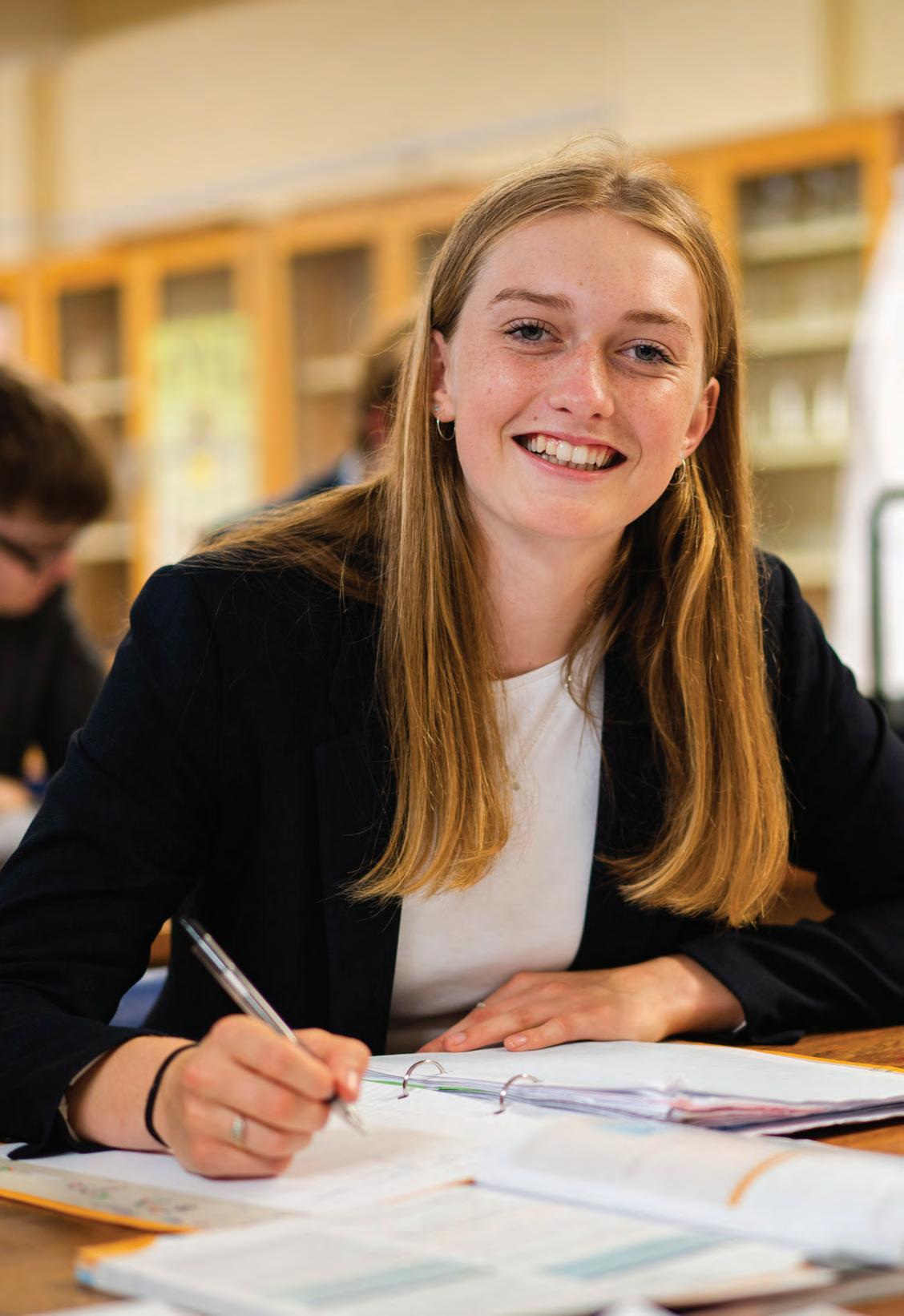
8:30: I arrive at school by bus most mornings. This gives me time to look through any notes for upcoming tests or just spend time chatting and playing games with the others.
8:40: We register and then have a Sixth Form chapel service. This happens once a week and provides an opportunity to take our focus to a philosophical topic, away from school work and prepares us for the day ahead.
9:00: My school day begins with double chemistry, where we are learning our organic module and today completing a required practical on oxidising alcohols. With A Level chemistry we are given more responsibility handling chemicals and apparatus.
10:40: After break time I have a double geography lesson, we are currently working on our non examined assessments which requires independent study on a chosen topic from our syllabus, completing field work and developing presentation skills.
12:15: I have a study period before lunch, in which usually I do personal and prefect administration, and begin PSC (homework). We have lunch in our Sixth
Form dining room with many options of meat, fish or vegetarian main meals, sandwiches or a packed lunch.
2:00: During the summer term there are often cricket matches played on the school field so today we stayed and watched the boys’ first XI, they beat the Old Ipswichians! Then we go to the astro for our games afternoon.
Sport players are offered athletic development which is a strength and fitness focused programme in preparation for the Michaelmas term. It is proving popular and enjoyable and I especially like the fact that it is run as a mixed gender session.
4:15: The school provides numerous co-curricular activities. As part of the first XI hockey team we have after school team training and open sessions that take place throughout the summer term. These aim to form a cohesive team anticipating a competitive and successful season next year.
6:00: I go home, finish my PSC and sometimes go for a horse ride before a nice big supper and heading to bed.
Head of department: Simon Arthur
Exam board: OCR
Exam results: Average of the A Level results achieved in Physics over the most recent three year period: A* 22%, A*-A 49%, A*-B 73%, A*-C 94%
The A Level Physics course begins by giving students a solid grounding in the fundamental skills associated with quantities, units and measurements. Year 12 students then complete work on forces and motion, materials, electricity, waves and quantum physics. Year 13 begins with gas laws, circular motion, oscillation, gravity and cosmology. The course is completed with topics on capacitance, fields, particle physics, radioactivity, nuclear physics and medical imaging. Alongside this material, students are assessed on their ability to complete a series of standard practical tasks. Lessons typically involve the introduction of new concepts through delivery of theory and discussion with students. Often learning is reinforced through the use of practical work and demonstrations, and students have the opportunity to use advanced equipment.
We make a great effort to offer a rich variety of activities beyond the curriculum. Students participate in many trips to lectures either in Ipswich or at the Cavendish Laboratories in Cambridge. Year 12 students visit the Diamond Light Synchrotron in Oxfordshire. Year 13 students join us for a day trip to the Large Hadron Collider (CERN) in Geneva. Students are also encouraged to help out with other Physics events so that they can enthuse younger pupils and also to enhance their own university applications. For example helping to run the LEGO robotics club, assisting with outreach events such as PhysicsFest and science activity days here at Ipswich School.
The course is assessed by three exams at the end of Year 13.
To be successful at A Level Physics, students are strongly advised to take A Level Maths as well.
Head of department: Steve Blunden
Exam board: Edexcel
Exam results: Average of the A Level results achieved in Politics over the most recent three year period: A* 24%, A*-A 54%, A*-B 90%, A*-C 96%
This A Level subject will appeal to students with an interest in current affairs and a wish to find out more about the workings of both the British and the American political systems. The course takes two years to complete and consists of three central elements.
Component 1 is entitled UK Politics. Democracy and participation, political parties, electoral systems, together with voting behaviour and the media are the topics explored here. Alongside these areas, the core ideas of conservatism, liberalism and socialism are studied.
Component 2 entitled UK Government, consists of further key features of the British system, namely the constitution, Parliament, the Prime Minister and executive, together with relationships between the branches of government. One non-core political idea is also tackled, most likely either feminism or nationalism.
Component 3 is called Comparative Politics and deals with the USA in particular. Students study the US constitution and federalism, the US Congress, the US Presidency, the Supreme Court and civil rights, democracy and participation, together with comparative theories, allowing us to revise the earlier British components.
Three 2 hour exams are undertaken at the end of the two years, but clearly Politics is about more than this. It is an academic subject with a strong reputation and connections to a number of other A Levels, especially History and Economics.
Head of department: Jane Anderson
Exam board: Edexcel
Exam results: Average of the A Level results achieved in Psychology over the most recent three year period: A* 19%, A*-A 45%, A*-B 75%, A*-C 90%
Psychology A Level is a linear course which consists of three papers. Paper 1 focuses on social, cognitive and biological psychology and learning theories. It looks at topics such as obedience and prejudice, theories about how memory works and why we forget, aggression, brain functioning and criminal behaviour, conditioning, social learning and phobias.
Paper 2 looks at the way in which psychology can be applied in real world settings and situations which relate to vocational contexts in which a psychology graduate may operate. It covers aspects of clinical psychology including schizophrenia and other mental illnesses, their causes and treatments, as well as criminal psychology which considers different explanations for why people turn to crime, how to treat offenders, and the psychology of the courtroom.
Paper 3 reviews methodology, research studies and wider issues, and debates in psychology. Students will develop transferable skills to support study in a wide range of subjects at university and the transition to employment. This includes law, biomedical science, psychology and social sciences, business and economics, sport and exercise science, biology and statistics.
At the end of Year 13 there are three 2 hour papers which include a mix of short-answer questions, calculations, data interpretation and extended responses.
Head of department: Katherine Wells
Exam board: Edexcel
Exam results: Average of the A Level results achieved in Russian over the most recent three year period: A* 48%, A*-A 74%, A*-B 85%, A*-C 95%
A Level Russian students move beyond the familiar topics of GCSE and soon begin to encounter authentic texts in order to practise the skill of reading for meaning in a foreign language. Throughout the two year course they seek to consolidate their grasp of abstract vocabulary in order to improve their reading and listening skills. Students tackle topics such as Russian history, politics, culture and social issues, examining the country’s turbulent past as well as its intriguing present. They constantly develop their translation skills, both into Russian and into English, and they begin to write essays on cultural topics. In order to produce accurate and complex Russian, students spend a considerable amount of time examining and practising new grammatical structures.
Having the confidence to speak in a foreign language is crucial for success. In addition to oral work in class, students of Russian in Year 12 are able to practise their oral skills in their weekly lesson with the Russian conversationalist, and this continues in Year 13. In their final year they research a topic of their own choice in preparation for the presentation and discussion component of the A Level oral exam.
Finally, students study a contemporary Russian film and also read a classic work of literature during lessons. This not only prepares them for the essay paper, but also offers them an insight into the fascinating cultural history of Russia.
At the end of Year 13 there are three exams: a comprehension paper (listening, reading and translation) worth 40%, a writing paper (two essays and a translation) worth 30% and an oral exam worth 30%.

Head of department: Maria Cascon-Soriano
Exam board: Edexcel
Exam results: Average of the A Level results achieved in Spanish over the most recent three year period:
A* 16%, A*-A 68%, A*-B 96%, A*-C 100%
The A Level Spanish course covers a range of social issues and cultural topics which all relate to life in Spain and Spanish-speaking countries. It builds on the topics of GCSE, but introduces new language so that students develop a thorough insight into aspects of Spanish culture. Students study a Spanish film in depth and, in the second year of the course, a work of Spanish literature. More contemporary issues such as modern Spanish music, the changing nature of the family and the multicultural society, are also core elements of study. Students develop their ability to express themselves fluently in the spoken language, carrying out an independent research project into an aspect of Spanish culture or society that is of particular interest to them, and then discussing it in depth in the oral exam.
Alongside the skill to translate accurately from and into Spanish, students will extend their ability to write evidence-based, persuasive essays in Spanish. In Year 12, the following topics are studied: changing family structures, the world of work, the impact of tourism - all within the context of Spain. Within the context of Spain and Latin American countries students study the media, festivals and traditions, music, a Spanish film: Pan’s Labyrinth by Guillermo del Toro. In Year 13, the following topics are studied: immigration, integration and multiculturalism, the civil war, Franco’s dictatorship and the transition to democracy, a work of Spanish Literature: Chronicle of a Death Foretold, by Gabriel Marquez and an independent research topic. At the end of Year 13, Spanish A Level has three exams: a comprehension paper with listening and reading tasks 40%; a writing paper, comprising two essays and a translation 30%; and an oral exam 30%.
Head of department: Sarah Carvell
Exam board: Pearson
Exam results: Average of the results achieved over the most recent two year period:
D*D*D* 29%, D*D*D 57% DDD 79%
This Level 3 National Extended Diploma BTEC in Sport and Exercise Science is equivalent to 3 A Levels in terms of UCAS tariff points. Students will study one A Level subject alongside this BTEC course, but this cannot include A Level PE.
There are 13 units of study. The seven mandatory units include areas such as functional anatomy, applied sport and exercise psychology, coaching for performance and fitness and applied research methods in sport and exercise science. The six optional units include sports injury and assessment and specialised fitness training. Assessment methods include internally assessed assignments, and externally assessed tasks and exams.
Exam results: Average of the results achieved over the most recent three year period:
A* 53%, A*-A 86%, A*-B 92%, A*-C 100%
The EPQ is a very popular option among our sixth formers. It involves researching a topic of interest and writing a 5,000 word essay to answer a question students set themselves at the outset of their work. Each student taking the EPQ is assigned a supervisor who will meet them regularly. Key research skills are assessed and are valuable at degree level. The EPQ is studied as part of The Edge programme.
We stretch and challenge our more able students both in the classroom and beyond the curriculum. Various competitions, conferences and seminars are organised departmentally. A lecture series takes place each year, with lectures primarily given by students on topics from their EPQ research. There is also a weekly ‘Athenaeum’ discussion group led by students which is well attended and seen as a highlight of the week.
The Edge is a central aspect of our Sixth Form education. It is a programme which is designed to equip Ipswich School Sixth Form students with a series of skills, which will set them apart in today’s rapidly changing and increasingly competitive world.
This unique programme has been developed in response to issues identified by universities, employers and parents to address aspects of personal development which are not naturally developed in the academic or co-curricular spheres.
The programme is delivered across Years 12 and 13 in four lessons per fortnight. All students (apart from those taking Further Maths) will undertake modules that will help prepare pupils for life after school.
Students will become a Mental Health First Aider, complete a cooking programme including training on cooking, nutrition and budgeting, digital responsibilities (internet safety and managing a positive online profile), presentation and public speaking skills, health and fitness for life, travel opportunities, cultural awareness, lessons for life (financial literacy, law and civic responsibility) and complex problem solving.
Students attend periodic conferences covering a wide range of subjects which are designed to be thoughtprovoking or to help with crucial life issues.
Conferences are also organised to match the university application cycle. This includes an annual Higher Education evening for parents and students, along with dedicated UCAS preparation sessions, allowing students to submit well researched and high quality applications to university or a range of degree apprenticeship and school leaver apprenticeship schemes.
Within the programme, those wishing to complete an Extended Project Qualification (EPQ) begin this at the end of Year 12, allowing the independent research element to be completed over the summer break and the taught and mentored elements to be delivered at the beginning of Year 13. These will take place in the time other elements of the carousel are being delivered.
Students wishing to study Further Maths are not able to attend all the sessions, but join all aspects which are delivered to the whole year group, including careers, RSE and advice on developing effective study skills.
A highlight of the Edge programme is when the entire year group spends a week at a residential activity centre in Devon towards the end of the summer term in Year 12.
Here the students have the opportunity to enjoy many of the outdoor activities that this environment has to offer, whilst also developing important skills, including personal safety, stress management, interview skills, car maintenance and much more. Students plan, organise and cook much of their own food and learn what it takes to ‘survive’ independently away from the family home. They also learn how to surf!
The Edge is completed by the Easter break in Year 13, allowing students to take advantage of the exam preparation advice provided by academic departments in the weeks leading up to the final exams.





The programme gives students the edge in today’s rapidly changing and increasingly competitive world.
Sixth Form students enjoy some of the very best music facilities in our newly built Britten Faculty of Music. This facility is widely used by students throughout the day and we have dedicated rooms available for students to use for instrumental practice or simply to enjoy making music with others.
Instrumental lessons are available for everyone and we have an excellent team of experienced specialist visiting music teachers who teach a wide range of instruments.
For those wanting to take part in ensemble playing we have much on offer, including three orchestras, chapel choir, big band, jazz ensembles and many chamber groups. We encourage a passion for performance alongside these activities and offer a wide variety of different performance opportunities from informal concerts to our annual spring concert at the renowned Snape Maltings Concert Hall.
We also offer the opportunity to study Music at A Level. A significant number of our Sixth Form musicians have gone on to secure music scholarships at universities and many have followed careers in the world of music and arts.
Sport is very much part of Sixth Form school life. Every student has sport in their timetable with all taking part in sport every Tuesday afternoon. A Level PE is also a popular option in the Sixth Form. The main team sports for boys are rugby, hockey and cricket. For girls the main sports are hockey, netball and cricket.
We offer the very best coaching and facilities for team sports - many of our coaches have represented their country in their sport.
Other sports are offered at both recreational and competitive levels, and these include cross-country running, golf, tennis, football, rounders, badminton, squash, sailing, aerobics, yoga, swimming, fitness and Eton fives. Facilities include a state of the art conditioning suite, an indoor swimming pool, two sports halls, four astroturf hockey pitches and numerous football, rugby and cricket pitches.
Representing the school is seen by many Sixth Formers as the peak of their sporting career and our rugby, netball, cricket and hockey teams have enjoyed considerable success. In 2022, our boys’ indoor hockey team were national champions.
Many of our students have gone on to represent their country in sport, including four in GB men’s and women’s hockey teams.
We offer the very best coaching and facilities for team sports.
Drama is a thriving part of the Sixth Form community. Each year students perform in either a play or musical, each of which is directed to a professional standard. They receive rave reviews. We have a purpose-built theatre with professional sound equipment and a lighting rig.
Students can also get involved in the wider theatre community. We run a drama activity on Thursday afternoons. Students produce and perform their own pantomime regularly to over 600 primary school pupils. We run international trips to learn about different theatrical cultures. Drama also fosters a special partnership with world-renowned Gecko Theatre Company.
A Level Drama and Theatre is a popular option and speech and drama lessons run within the school as an additional qualification. A number of former students now make their living from theatre, television and film.
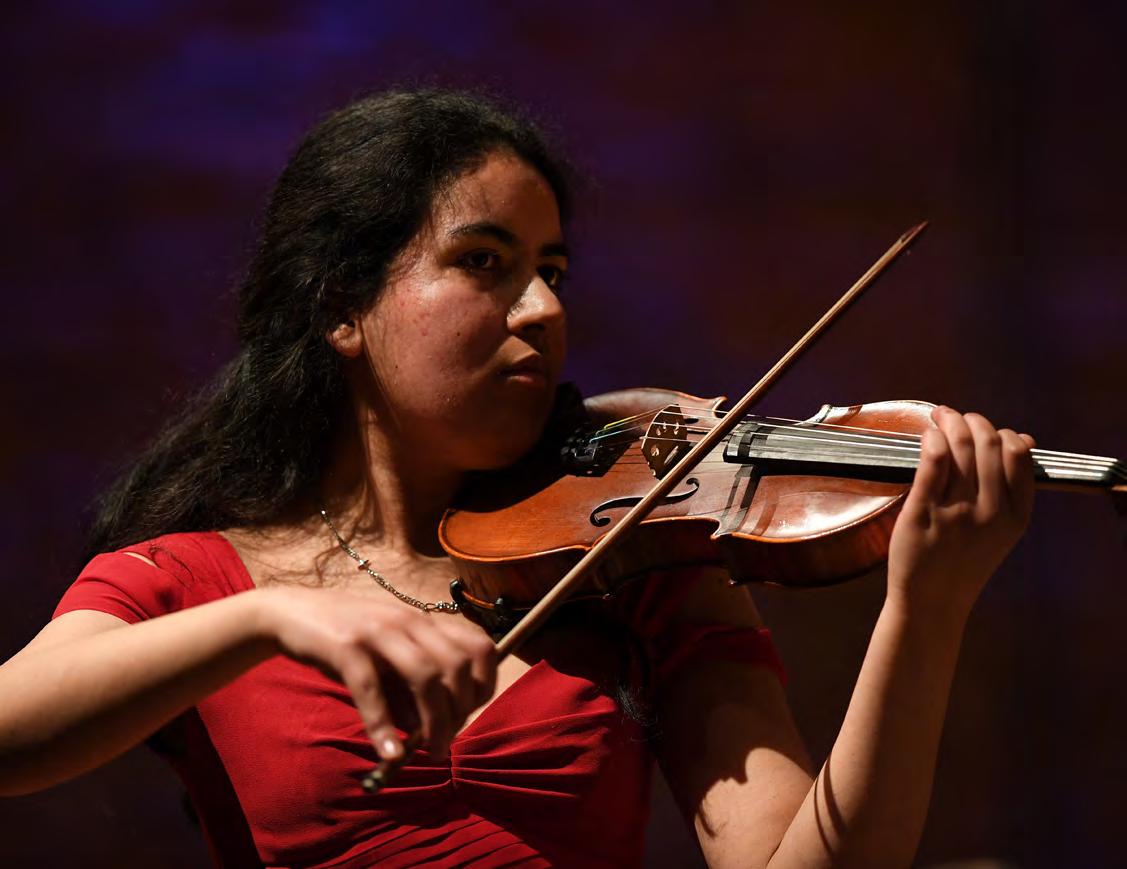
Sixth Formers run a range of lunchtime clubs for themselves; some specialist clubs are run by staff. Clubs include art, chess, debating, Mandarin, Show Choir and Consciousness Club to name but a few. Each year, as students find others with similar interests, new and exciting clubs appear.
We provide breakfast and the very best in school lunches. Sixth Formers have their own canteen for lunch.
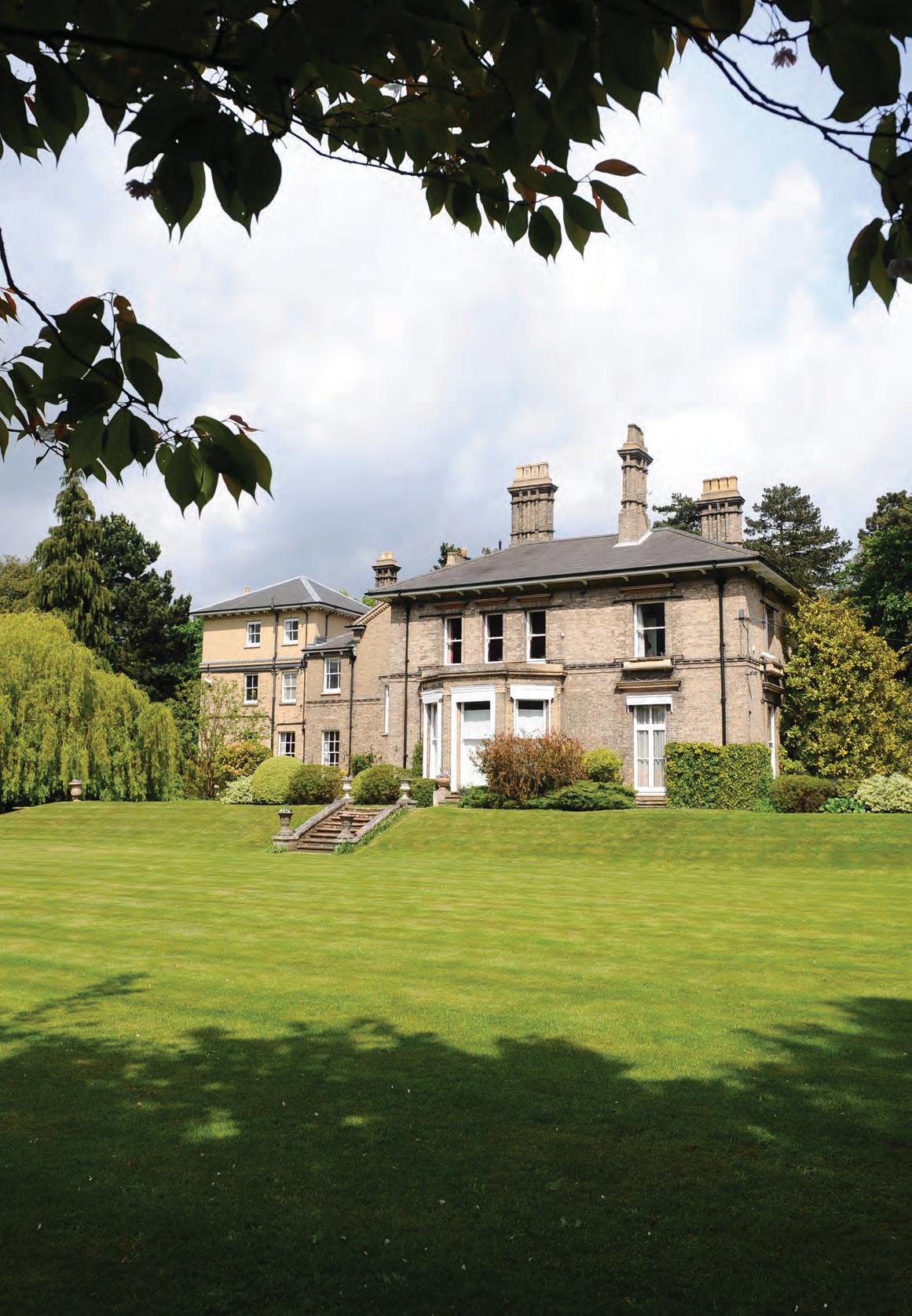
Ipswich School has attractive boarding facilities at Westwood, a Victorian mansion set in wooded grounds about 200 metres from the school campus. We also have a boarding house at Anglesea Heights, close to the centre of Ipswich and the historic Christchurch Park.
Both have a welcoming atmosphere, and there is a real community in the boarding houses with a strong sense of identity. The accommodation is comfortable and our staff provide a friendly, relaxed atmosphere.
The Westwood boarding house is well-resourced with games and music practice rooms, and one of the school’s astroturf pitches is located within the recently restored Westwood gardens.
Shared facilities in the Anglesea Heights boarding house include a warm and welcoming lounge, TV room, kitchen, IT suites and music rooms. All rooms here have ensuite facilities.
Meals are provided by our gold award-winning
We offer flexible boarding arrangements. Full boarding and weekly boarding are both available. Weekly boarding is an excellent option for pupils living some distance away and a particularly popular option for Sixth Formers.
Predominantly a day school, we offer a wonderful opportunity for our small number of full-time overseas boarders to mix with British pupils and to enrich the culture of the school. Our boarding provision also provides a safety net should family circumstances change, and an opportunity for pupils to experience living away from home before moving on to university.
Predominantly a day school, we offer a wonderful opportunity for our small number of boarders to enjoy a close knit community with a strong sense of identity.
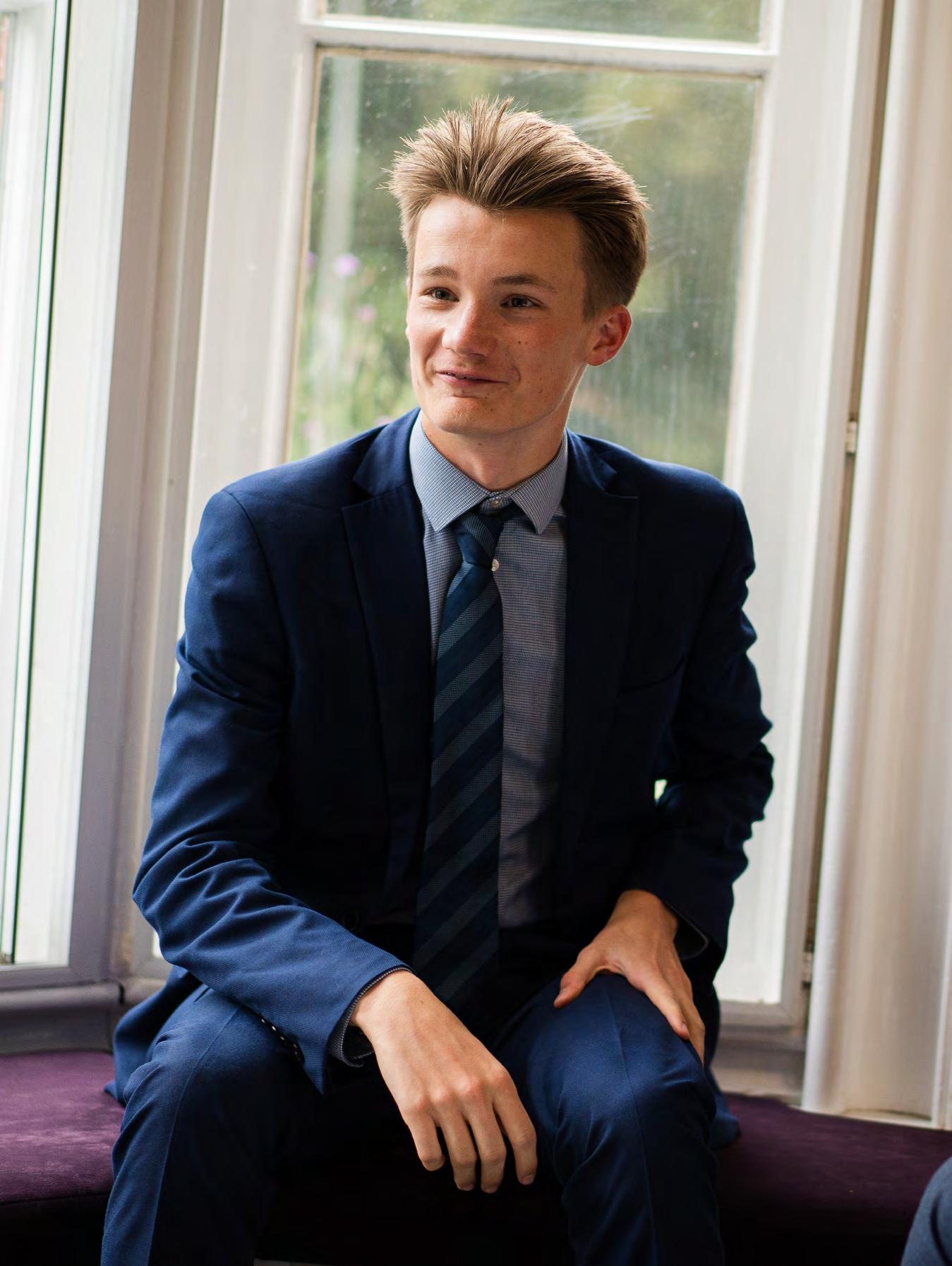
l For new students, entry to the Sixth Form is dependent on GCSE grades, an interview with the Headmaster and a school reference.
l To enter our Sixth Form and be successful, we like to see grade 7s in the GCSE subjects a student wishes to take at A Level (8s for biology, chemistry, physics, maths or computer science) or in relevant subjects, with at least six grade 6s overall.
l We also know that to be successful in certain subjects which they may not have studied before, students will need to have a solid foundation in relevant GCSEs. For example, A Level Psychology and A Level PE with GCSE Biology and A Level Economics with GCSE Maths.
l We also accept students onto BTEC Sport and Exercise Science plus one A Level. For this combination we like to see at least six grade 5s at GCSE overall, with a 7 in a relevant subject for the A Level.
l Below this attainment level, it is likely that we are not the right match for a student, although we are happy to discuss exceptional circumstances.
l Academic, sport, music and all rounder scholarships are available
l These are awarded for academic excellence, for exceptional musical or sporting talent and for an all-rounder who will do well academically and contribute outstandingly in other areas of school life such as sport, music or drama.
Our Founding Futures campaign raises funds to enable less well off pupils to benefit from an Ipswich School education. A limited number of Ipswich School means-tested bursaries are available for Year 12 entry for pupils of high academic or all-round ability whose parents could not otherwise afford the school fees. These awards vary from a small amount to 100% of full fees and these are means-tested on an annual basis, taking into account both income and assets.
See our website for more details about fees and deadlines. There is a step by step guide taking you through the Sixth Form application process. You will also find out how to apply for scholarships and awards.

Bus services are organised from the following places to Ipswich School, picking up pupils at designated stops along the way:
• Brantham
• Bur y St Edmunds
• Claydon
• Colchester via Ardleigh/Capel St Mary
• Colchester via West Bergholt/Boxted/Langham
• Debenham
• Dedham
• East Bergholt
• Eye
• Felixstowe/Trimley
• Frinton
• Hadleigh
• Halstead
• Hitcham
• Holbrook
• Otley
• Kelvedon
• Nayland
• Stowmarket
• Sudbur y
• Tendring
• Witnesham
• Woodbridge
Now that you have read this prospectus, we would love to show you around our Sixth Form in person. To arrange your tour, or to speak to us about anything you have read here please contact:
Details of all the bus services are available at: www.ridekura.com/ipswich-school
Bus application forms are available when you visit the school, or via email at: buses@ipswich.school
Mrs Laura Trainer Senior Admissions Manager 01473408300
Sending our son to Ipswich School is probably one of the best decisions we have ever made. We have to consider the fee by far the best money that we have spent even though it has meant we have had to make sacrifices
Parent
What a legend and an inspiration! I have really, really appreciated your inspirational teaching and wide knowledge (of just about everything) as well as your warmth and wisdom.’
Student
It’s often been said that it’s not the subject matter not the teacher that gets people interested in a subject. For me, it was wholly the teacher...you have been an inspiration and you’ve always pushed me to do my best.
Student
I would like to say a massive thank you for all you have done for me over the past five, most enjoyable years of my life. It has been such a pleasure to be a member of the House, which I will miss a lot.
Student
Designed by Mackman | mackman.co.uk